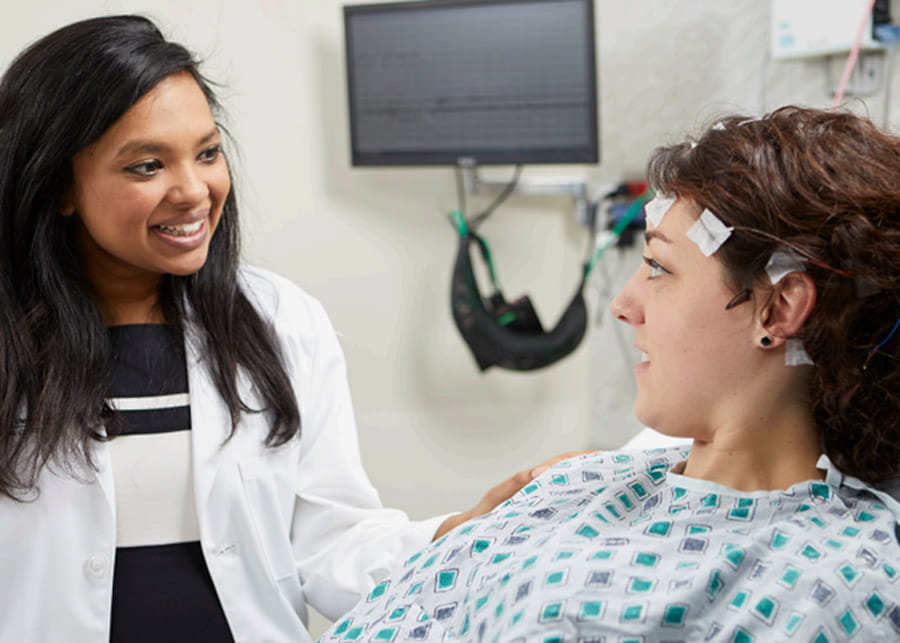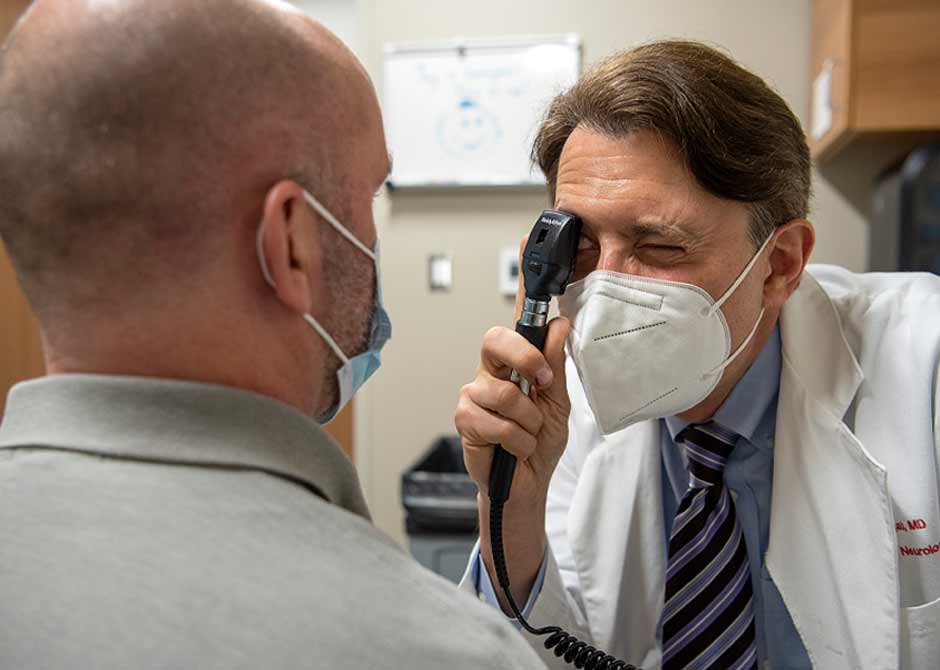
Cerebrovascular
A critical mission of our department is to provide highly skilled diagnostic services and personalized, holistic care for neurological disorders, at a level of expertise typically only available at academic tertiary medical centers. We currently have 20+ multidisciplinary and subspecialty clinics with an average of 2-3 specialty clinics being added every year.
Each clinic is supported by a dedicated professional with expertise in a very specific condition. Multidisciplinary clinics can have physical therapy, occupational therapy, speech therapy, nutritionists, pharmacy services, neuropsychologists and psychologists, geneticists, respiratory therapists, and dedicated social workers. This comprehensive care focuses on individuals needs and allows for better communication with patients and among many different providers.
Post clinic survey results show that 94% of patients feel that they have benefitted from these multidisciplinary and subspecialty clinics, with over 80% of patients feeling that their quality of care was improved. Additionally, more than 90% of patients would recommend these clinics to other individuals with their condition.

At The Ohio State University Wexner Medical Center, we are committed to providing highly personalized, all-encompassing care. We realize that everyone has a different journey through their neurological diagnosis, and we are dedicated to providing a supportive mechanism for each individual path. These innovative multidisciplinary and subspecialty clinics are designed to give patients and their caregivers comprehensive, specialized care to improve outcomes, strengthen communication between teams, and enhance quality of life all while providing convenience through one single visit.
Sarita Maturu, DO
Associate Professor of Neurology, Epilepsy Division
Director, Neurology Specialty Clinics
 Innovative approach centers neurological disorder care around the patients
Innovative approach centers neurological disorder care around the patientsBenjamin Segal, MD, and his team at Ohio State are making it easier for patients with neurological conditions like Parkinson’s disease and MS to access all their care in specialty clinics designed to center all services patients may need.
Download referral form and enter clinic name in "Reasons for referral" field.
Download referral formIf you would like to send your questions via email, please reach out to us.
Email us